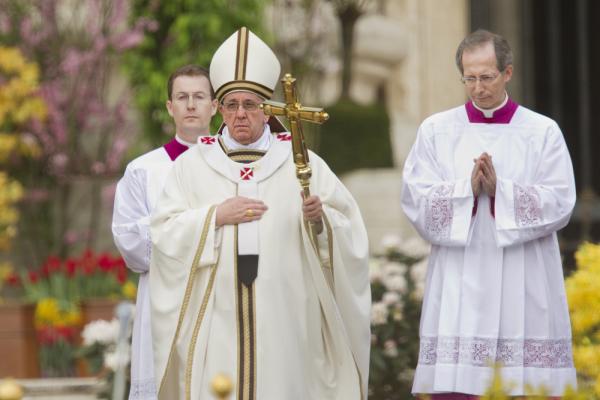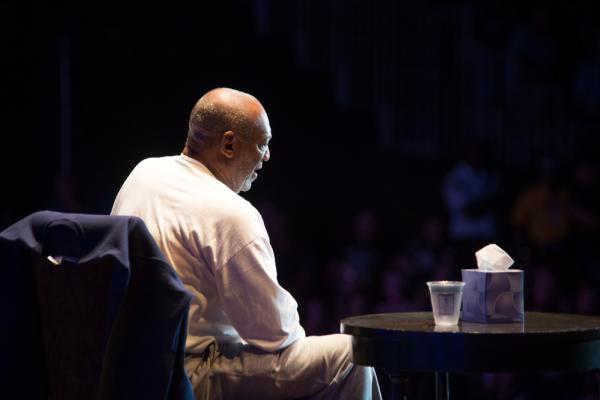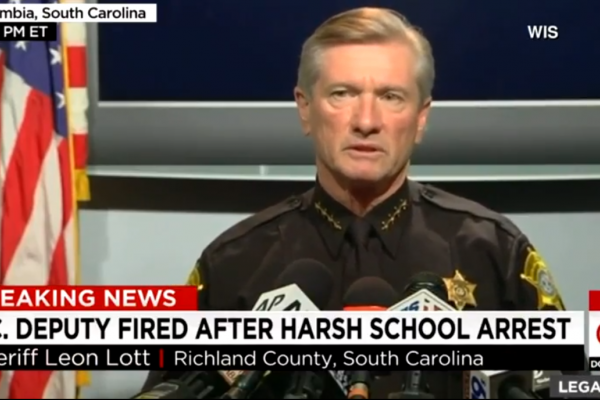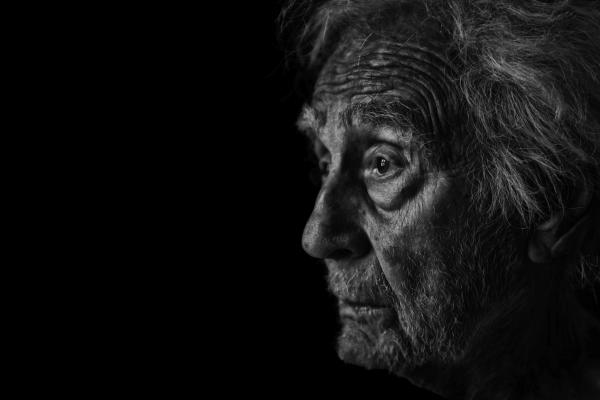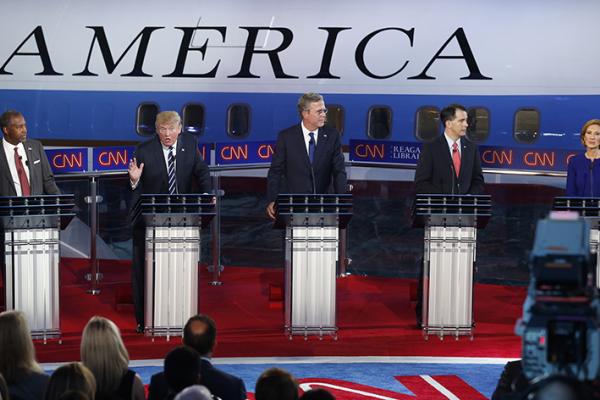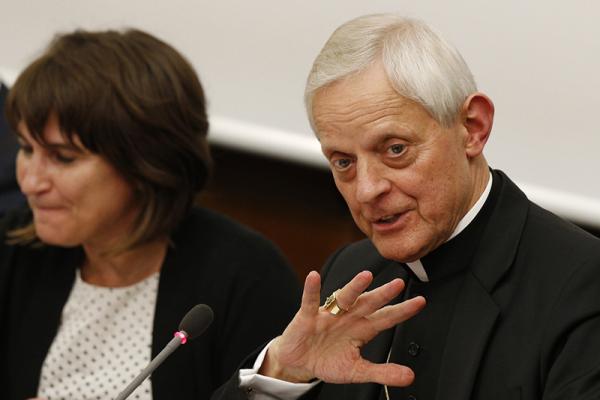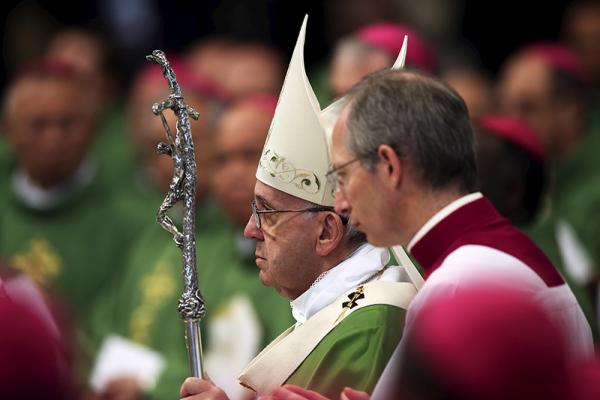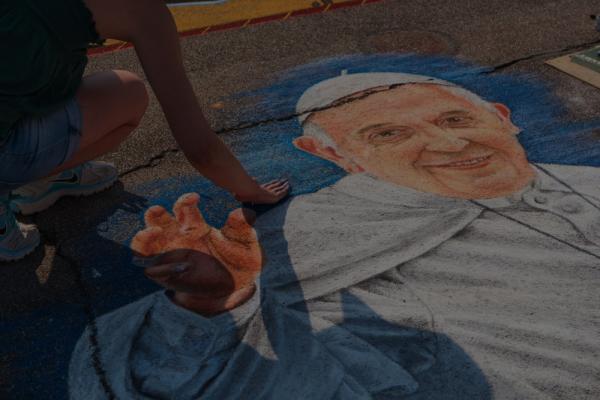The Vatican announced Oct. 28 that Pope Francis will issue a document about the family as a follow up to the recently-concluded Synod on the Family, according to America magazine.
The Synod on the Family, a meeting of 270 bishops which discussed, among other things, communion for divorced and remarried Catholics and pastoral approaches to the LGBT population, lasted three weeks and ended Oct. 25. Pope Francis will release an “apostolic exhortation,” a type of papal document commonly released after a synod, which is one step down in authority from an authoritative papal encyclical. “Laudato Si,” Pope Francis’ recent writing on the environment, was an encyclical.
As sexual assault on college campuses became a national conversation in the U.S., dozens of women came forward with stories that Bill Cosby sexually assaulted them — and in many cases, that he drugged and raped them.
In response, some colleges that awarded Cosby an honorary degree have rescinded the award. Fordham and Marquette were the first two to do it, but with Springfield College’s recent announcement this week that it was revoking the comedian’s honorary degree, that number has grown to 12.
Still, a majority of the schools that awarded him a degree — at least 60 — have not revoked the honor. Vulture contacted more than 40 of these schools and listed their responses on their site. Some colleges replied that they were currently having discussions about the matter, while others made statements similar to George Washington University’s:
“It has never been the university’s practice to rescind an honorary degree.”
South Carolina sheriff Leon Lott announced Wednesday afternoon that Ben Fields, the police officer who violently arrested a 15-year-old black female student at Spring Valley High School, has been fired.
"It's not what I expect from my deputies, and it's not what I tolerate from my deputies," said Lott.
Although Lott removed Fields from his police force, he also commented on the behavior of the student.
The poetic prayers, songs, and laments of the book of Psalms were recorded to teach worshipers how to praise God, as well as to lament and grieve. When undergoing times of agony or when words are not enough, the Psalms can express the painful emotions for us, as processing emotion helps us to move forward with difficult choices.
Much of the Psalms were attributed to David, including the prayer of Psalm 55—a lament about suffering violence at the hands of a loved one. Many victims of abuse find themselves alone and abandoned by family and friends who become impatient and exasperated by their ongoing struggle with loving their abuser. Praying through a Psalm may be an emotional refuge during such a painful time.
Oct. 28 is the third debate for the Republicans, and since their last stage appearance, several have been ringing the religious liberty bell from one primary state to the next.
CNBC, which is hosting this debate, says the focus will be on economic issues when the mikes turn on at Coors Events Center at the University of Colorado in Boulder.
But that doesn’t mean God talk will be muted. Didn’t Pope Francis just sweep through, telling U.S. leaders about the moral dimensions of public policy?
“The frame of reference is now going to be: ‘What does the gospel really say here?’ That’s our first task.”
That’s Washington Cardinal Donald Wuerl summing up the new course for Catholicism set by the momentous Vatican meeting of 270 bishops from around the world that concluded last weekend, a three-week marathon in which he played a key role.
After often contentious talks on whether to adapt the church’s approach to issues such as divorce and cohabitation, the high-level synod succeeded in giving Pope Francis a document that offers him significant new flexibility in shaping more pastoral policies.
Pope Francis named two new archbishops in Italy on Oct. 27, seen as strategic appointments for the pontiff’s push to create a “poor church.”
Matteo Maria Zuppi will leave his position as an auxiliary bishop of Rome to take up his new post in Bologna, in central Italy. And Corrado Lorefice, a parish priest in the Sicilian city of Noto, has been named archbishop of Palermo.
Both are relatively young to receive such high office; Zuppi turned 60 this month, while Lorefice has just celebrated his 53rd birthday. But more importantly, the new archbishops have adhered to the pontiff’s wish to prioritize caring for the poor.
My thoughts go to the recent perilous journey of a close Iraqi friend — I will call him Mohammed — and his son, whom I will call Omar. Already the survivor of an assassination attempt, this trusted translator, driver, guide, and confidant received a death threat in early August. He fled under cover of night, taking Omar with him. On that same day, 15 men were kidnapped in his village. He left behind a wife and six other children.
From Baghdad, Mohammed and Omar fled to Kurdistan and into Turkey. Next they boarded a boat from Turkey to a series of Greek islands, where, much to their relief, they were at last able to get on a ferry to Athens.
Mohammed wrote letters throughout his journey. The messages that came were understandably brief. I often did not know what to advise him. But having lived with this dear family, I felt as if I were on the hazardous and exhausting 42-day journey with them.
What follows are excerpts from those letters.
My rabbinic colleague, David Saperstein, the U.S. ambassador-at-large for international religious freedom, issued a “glass half full” report earlier this month, noting that “… over the last several years there’s been a steady increase in the percentage of people who live in countries that … have serious restrictions on religious freedom.”
At the same time, he noted, “we’ve seen enormous expansion of interfaith efforts on almost every continent to try and address the challenges.”
Much of that “enormous expansion of interfaith efforts” can be traced to the historic Nostra Aetate (Latin for “In Our Time”) Declaration that the world’s Catholic bishops adopted 50 years ago at the conclusion of the Second Vatican Council.
At the conclusion of the most recent synod, Pope Francis encouraged bishops assembled to continue their journey. During this ongoing journey, Pope Francis warned against “hostile inflexibility” and to allow one’s self to “be surprised by God.”
Will seeking an understanding into the differences between civil and sacramental marriage help to diffuse church tension? Can religious and civil liberties peacefully coexist?
The words and actions of Pope Francis certainly indicate a desire to explore such a path. The question then becomes: will others follow him on this journey?
